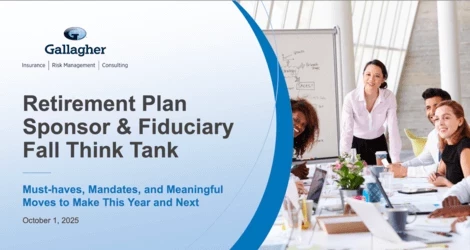Case Study: Pfizer's Health Savings Account Levels the Playing Field
Add bookmark
For years, the pharmaceutical company Pfizer struggled to design a healthcare benefit that could work for all employees and not just the most highly paid ones. What makes Pfizer unique is its ability to offer medications for free or at a deep discount because that is their business. But leaders in Human Resources wanted to do more.
REPORT: How to Improve Employee Engagement in an Economic Downturn
When the subject of a Health Savings Account (HSA) came up, Pfizer wanted to follow the law and be fair to all employees. In addition to making sure Pfizer could offer low cost or free medications for conditions like diabetes and asthma, which is allowed under the Preventative Care Provision, it decided to offer a unique program.
“We knew HSAs are attractive for our more highly paid colleagues looking for a tax savings vehicle. But we also wanted to support our lower-paid colleagues, while still providing access to affordable, comprehensive healthcare coverage,” said Michele Proscia, Director of the U.S. and Puerto Rico Health and Insurance Benefits team at Pfizer. “From an enrollment perspective, it was a huge success.”
The plan categorizes employees into four separate income tiers and gives lower income earners the largest employer HSA contribution when they enroll. As a result, lower income earners are motivated to sign up and contribute to an HSA. Some have suggested that this is a way for companies to help close the retirement savings gap and further pay equity through benefits.
Health Equity Founder Steve Neeleman partnered with Pfizer to create this HSA program, and he recently talked with HR Exchange Network about the experience and how others might be able to make similar offerings.
WATCH: HR and Future of Work
HREN: How have employees responded to this benefit?
SN: Well, you know, from my perspective, it's been pretty positive. In fact, in the case study, they talked about how one-third of their people signed up in the first year. Usually, we'll see 15% to 20% per year, and they more than doubled that expectation. Everything we've heard, so far, is that their people are happy with the approach.
HREN: Do you think this is applicable in other organizations and other industries?
SN: Absolutely. Most companies want to have a more expanded benefit for their people, and they just struggle with it. Every employer could do this. You just have to structure it [properly]. Even though most companies aren't pharmaceutical companies, they can work with their pharmacy benefit provider, or their health plan provider and say that these are the benefits and medications we really want to be covered for our people. As a physician, I've always believed an ounce of prevention is worth a pound of cure. So, helping someone get their asthma medications filled in a timely and cost-effective manner will probably ultimately keep them out of the emergency room.
When I spent a lot of time in the emergency room as a trauma surgeon, many people showed up because they ran out of their asthma medications. That's a huge cost to the system and to the family. Also, you need the hours open for people who are experiencing other emergencies.
Yes, every company in the country can learn from Pfizer's example, just by using those two principles. What medications can we offer first dollar to our employees without being subject to the deductible? What's allowed under the current regulations?
HREN: What were some of the challenges that Pfizer faced?
SN: I think the biggest challenge was determining how to educate people. This is a big change. Pfizer never offered a Health Savings Account plan before. So we did some prep calls. They were not sure how their message was going to penetrate this population, and really get them to understand how much thought was put into it. We offered support. We offered webinars, whatever we could do to explain why this really worked for them.
HREN: What is your best advice for HR leaders?
SN: Number one, look at other peer companies who've been able to approach the benefit in a way that seems reasonable and has had good results. Number two, hire the right consulting firm, which has led those companies. Sometimes, companies will say, ‘I want to do X,Y, and Z.’ Then, the consultant doesn't really help design things. So, they must get the right consulting firm. Number three is a little self-gratuitous, but get the right HSA company, or similar type company that's going to be able to be there with the employees and provide a fantastic solution and educate people, even if it is around the clock.
Would you consider offering a higher match on an HSA for lower-income earners? Why or why not? Let us know in the comments or on LinkedIn and Facebook.
Join the global human resources online community

Join HR Exchange Network today and interact with a vibrant network of professionals, keeping up to date with the industry by accessing our wealth of articles, videos, live conferences and more.
Join NowPhoto by Andrea Piacquadio for Pexels














